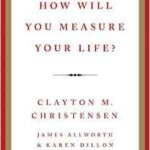“Stress and worry tend to be higher before you act. Without action, all you can do is worry. Once you begin fear shrinks as you start to influence the outcome.”
—James Clear, American Writer
Stress and worry often feel overwhelming before we take action. Our minds actually amplify fear when we’re stuck in inaction.
The moment we take the first step — even if it’s small — we reclaim a sense of control.
Acton breaks the cycle of worry and turns anxiety into momentum.
Every bit of progress reduces uncertainty and empowers us to handle most challenges.
EXERCISE:
In what ways can you shift your focus from imagined negative outcomes to concrete tasks you can influence?
How would visualizing more positive outcomes help you summon the courage to take the critical first steps to build your confidence and momentum to keep going?














